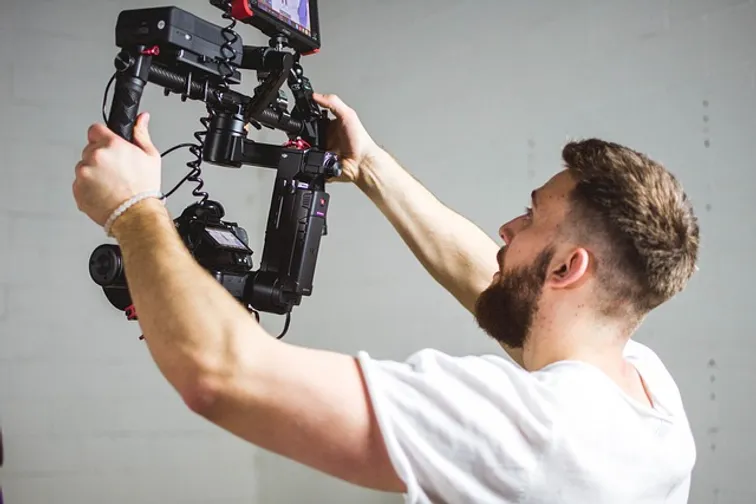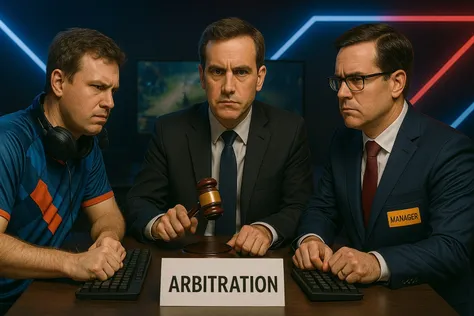The development phase is the fundamental pillar of the production of films, series, or commercials. Be it a low-budget true crime documentary or a Hollywood blockbuster, producers and their partners always need to address fundamental issues concerning the new project before shooting begins. In this article, the first in our series covering film and TV series production, you’ll learn what legal issues are most commonly addressed during the development phase and what to do to ensure your project is on solid footing.
No way without a script
The primary goal of the development phase is to give tangible form to existing ideas and concepts. The key deliverable is therefore the script (or synopsis) and related materials such as teasers, storyboards and concept/artwork, which help to visualise the film and subsequently form the basis of the production itself.
The rights to the screenplay and, by extension, to the materials on which the screenplay is based (typically a book or video game) and related materials must be contractually secured by the producer with the relevant rights holders (screenwriter, script editor and other authors) so that they can subsequently be used in the production of the film. Settling the rights to these key materials is of crucial importance, as any legal loopholes or disputes may ultimately block subsequent production.
Preparedness is the key to success
In the development phase, it is also necessary to address the provision of basic prerequisites for subsequent production. From the staffing point of view, it is primarily a matter of contracting (at least on the basis of a prospective contract) the protagonists, the director, the service productions, or other important members of the crew (camera operators, sound masters, editors).
The reason is simple: the relevant persons will reserve their capacity for the project after the contract is signed, and the producer will use the contracts as an argument supporting the credibility of the project. In this context, it is important to note that all creative contributors to the production of a film must have particularly robust intellectual property rights clauses in their contracts – without these, the contract would be fundamentally useless (not to mention the fact that any reasonable financier of the film will require the producer to settle the rights of these contributors).
In addition to staffing, producers must identify and, where appropriate, secure locations for the ensuing production. For highly sought-after locations, such as Barrandov Studios and other famous Czech locations, it is necessary to deal with bookings/claims well in advance, as well as the technology needed for the project.
Already at this stage it is ideal to address the issue of insurance that will cover the legal and financial risks associated with the production of the film (the producer will usually already have a basic insurance policy, but foreign studios tend to have specific requirements).
Cash is king
Once the producer has an idea of what the project will look like and how much it will cost, the question of funding needs to be addressed. Unless it is a fully funded “made to order” production model typical of film studio production, producers often need funding already to carry out the development phase, as creating key movie materials and securing key people is relatively expensive.
The basis for raising the funds is thus mainly a well-prepared presentation, budget and timetable of the entire project, which will allow potential financiers to adequately evaluate the potential investment in the project and subsequently sign a so-called deal memo and/or a development or co-production agreement.
Where the funding is provided by private investors (TV, streaming platforms, studios), it is also necessary to take into account that they will want to adequately secure their investment in the project. In practice, this typically involves a mix of technical measures (e.g. periodical reporting on the status of the project, phasing of funding), mechanisms giving the investor (exclusive) rights to individual development results (e.g. exclusive broadcasting rights for a certain territory, option to enter into co-production) and setting the funder’s share of the profits[1]. The point is simple – the producer gets the money and the financier gets the opportunity to interfere with the implementation of the project and a share in the film (especially the rights and revenues).
The producer can also obtain funding from state cinema funds (in the Czech Republic, in the form of incentives or subsidies) – but these are usually supplementary to the budget and, in most cases, are not in themselves sufficient for the completion of the project.
Once the funding issue is resolved, the “only” thing left to do is to get to work towards production, which we will discuss in the next part of this series of articles.
Conclusion
The development phase is the foundation of film and series production and should not be underestimated. The contractual relationships established at this stage are crucial to the production and subsequent distribution of the film and therefore need to be given due consideration.
If you need any help with the issued discussed above, please feel free to contact us at any time. We have a dedicated team for film and television law in our firm, dealing with audiovisual production issues on a daily basis and is fully available to address any situation.
- [1] – In the case of international studios, it is necessary to also take into account that the producer will also have to abide by various internal documents, such as anti-corruption policies etc., in order to ensure compliance.








